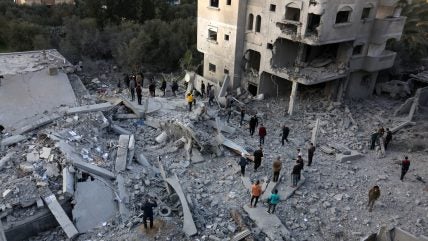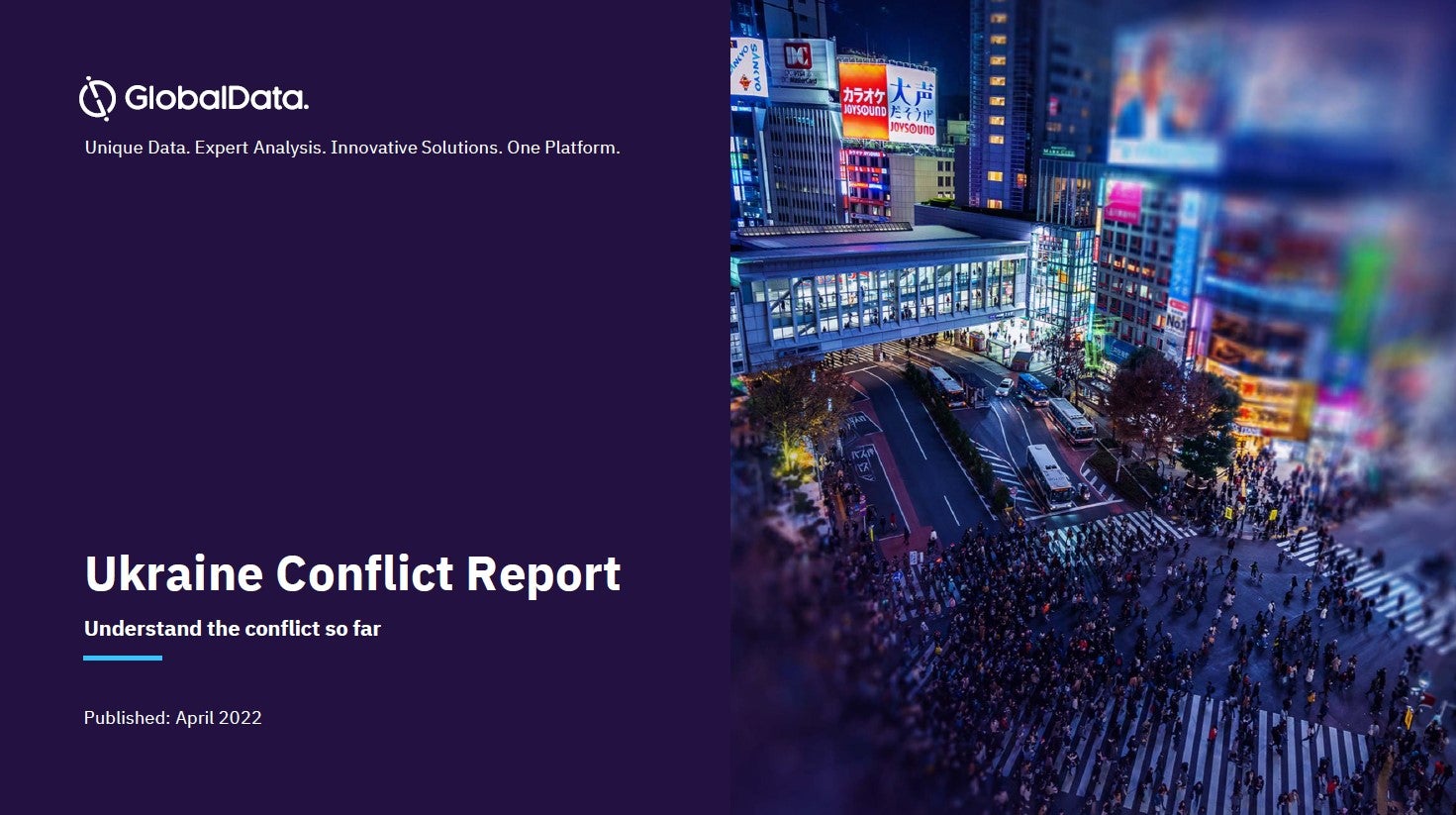
There is a critical lack of international attention on military emissions and the severe ecological damage inflicted during the ongoing Russia-Ukraine and Middle East conflicts, according to Doug Weir, Director at the Conflict and Environment Observatory (CEOBS).
Speaking on GlobalData’s Thematic Intelligence podcast, Weir analysed various war-based environmental issues, from the “apparently deliberate damage to agricultural areas around the Gaza Strip” to the Nova Kakhovka hydroelectric dam explosion in Russian-occupied Zaporizhzhia, Ukraine.
How well do you really know your competitors?
Access the most comprehensive Company Profiles on the market, powered by GlobalData. Save hours of research. Gain competitive edge.

Thank you!
Your download email will arrive shortly
Not ready to buy yet? Download a free sample
We are confident about the unique quality of our Company Profiles. However, we want you to make the most beneficial decision for your business, so we offer a free sample that you can download by submitting the below form
By GlobalDataUN-backed CEOBS works with international organisations to track military emissions and create databases and reports of environmentally damaging incidents in warzones.
Weir unpicked the sustained sense of “environmental exceptionalism” which underpins the lack of military emissions reporting, a major blind spot in the world’s fight against global warming.
“What’s vitally important is that we have a global standard and level playing field for emissions reporting to the UNFCCC,” he said.
Weir also discussed why military emissions were excluded from the UNFCCC in the first place, talks about military environmentalism at COP28, and what “pressure on water resources”, “pre-existing salinisation of the aquifer” and “solid waste issues” mean for the “long-term viability of communities in Gaza”.




